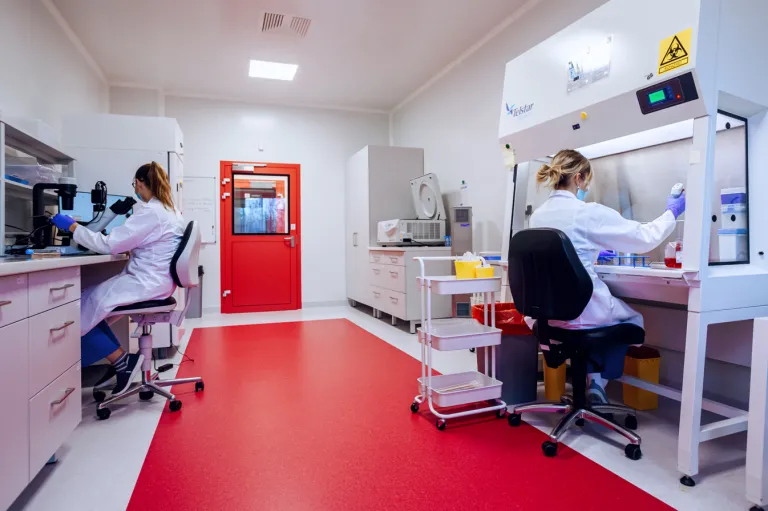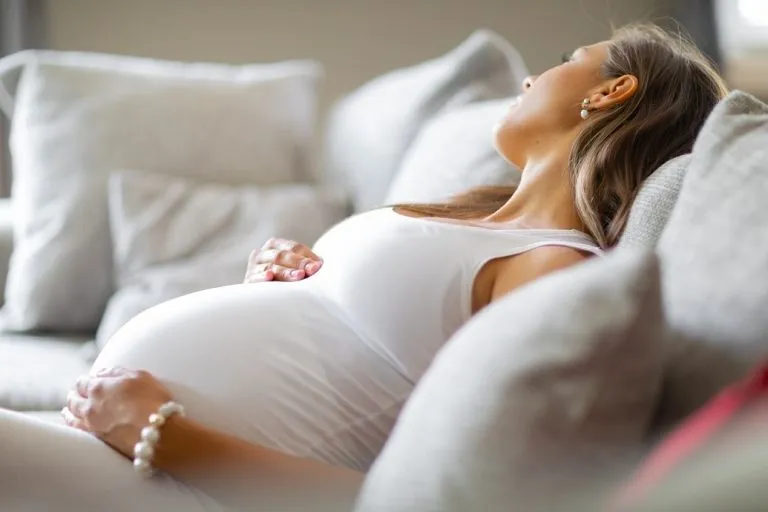Perineal pain in pregnancy occurs most often in the third trimester, close to the time of delivery. It is associated with the relaxation of ligaments under the influence of relaxin. Women usually feel it when walking or sitting for long periods of time. Perineal pain during pregnancy is worth mentioning to your gynecologist.
Perineal pain in pregnancy most often occurs during walking, prolonged sitting, standing up or exercise. The mother-to-be may feel discomfort, aching or pressure in the pelvis, which sometimes also radiates to the hips and groin. Perineal pain in pregnancy usually passes spontaneously after resting or changing positions. If it is very troublesome, you should consult a doctor, because there is a risk of a tear of the pubic conjunctiva.
Causes of perineal pain
Perineal pain in pregnancy usually occurs in the last weeks (most moms-to-be report perineal pain at 9 months of pregnancy) and is related to the body’s preparation for labor. The pregnancy hormones produced (including relaxin) cause the uterine ligaments, sacroiliac joints and the bone and cartilage tissue of the pelvis to relax. This process can cause groin and perineal pain in some women. In pregnancy, its cause is also the pressure of the uterus on the pubic conjunctiva.
Perineal pain before labor (i.e., after 36 weeks of pregnancy) is caused by pressure from the baby’s head, which means the baby is ready to come into the world, and labor action could start any day.
Read also: 34 week of pregnancy – intense movements of the baby
Perineal pain at the beginning of pregnancy
Some women experience perineal pain at the beginning of pregnancy or in the second trimester. It should not be a cause for concern, as it is also related to the action of pregnancy hormones and the preparation of a woman’s body for the systematic enlargement of the uterus and the change in figure. Perineal pain at the beginning of pregnancy resembles that which occurs before menstruation.
Is perineal pain dangerous?
Perineal pain in pregnancy is a physiological symptom that, although bothersome, should not be a cause for concern. However, it is a good idea to tell your pregnancy doctor about it and ask him for an orthopedic consultation. Sometimes perineal pain in pregnancy is a symptom of a diastasis of the pubic conjunctiva.
Pubic conjunctival distention is a situation that is caused by too much loosening of the bony and cartilaginous tissue of the pelvis, more specifically, the cartilaginous joint between the right and left pubic bones. Characteristic symptoms are pain in the perineum when walking and difficulty in moving (known as a duck-like gait). Dissection of the pubic conjunctiva makes it difficult and sometimes even impossible to give birth by natural forces. This problem affects 1 in 800 pregnant women.
Perineal pain in pregnancy in a situation where there has been a separation of the pubic conjunctiva is very severe. To alleviate it, it is necessary to use physiotherapy exercises, wear a special orthopedic (support) belt, in addition, rest and avoid carrying heavy objects. In extreme cases, the doctor may order the pregnant woman to take painkillers and anti-inflammatory drugs. It also happens that surgery is necessary after childbirth.
You should also go to the doctor if perineal pain in pregnancy occurs with other symptoms:
- Spotting or bleeding from the genital tract,
- uterine contractions,
- severe abdominal pain,
- elevated body temperature.
In such a situation, it is necessary to immediately perform an ultrasound (ultrasound) and cardiotocographic (KTG) examination.
Stabbing in the perineum during pregnancy
Sometimes women report stabbing in the perineum during pregnancy. It, too, should not cause concern, as it is associated with the relaxation and stretching of the uterine ligaments and cartilaginous tissues of the pelvis. Stabbing in the perineum during pregnancy can occur both at the beginning and before termination.
Rate this article:











